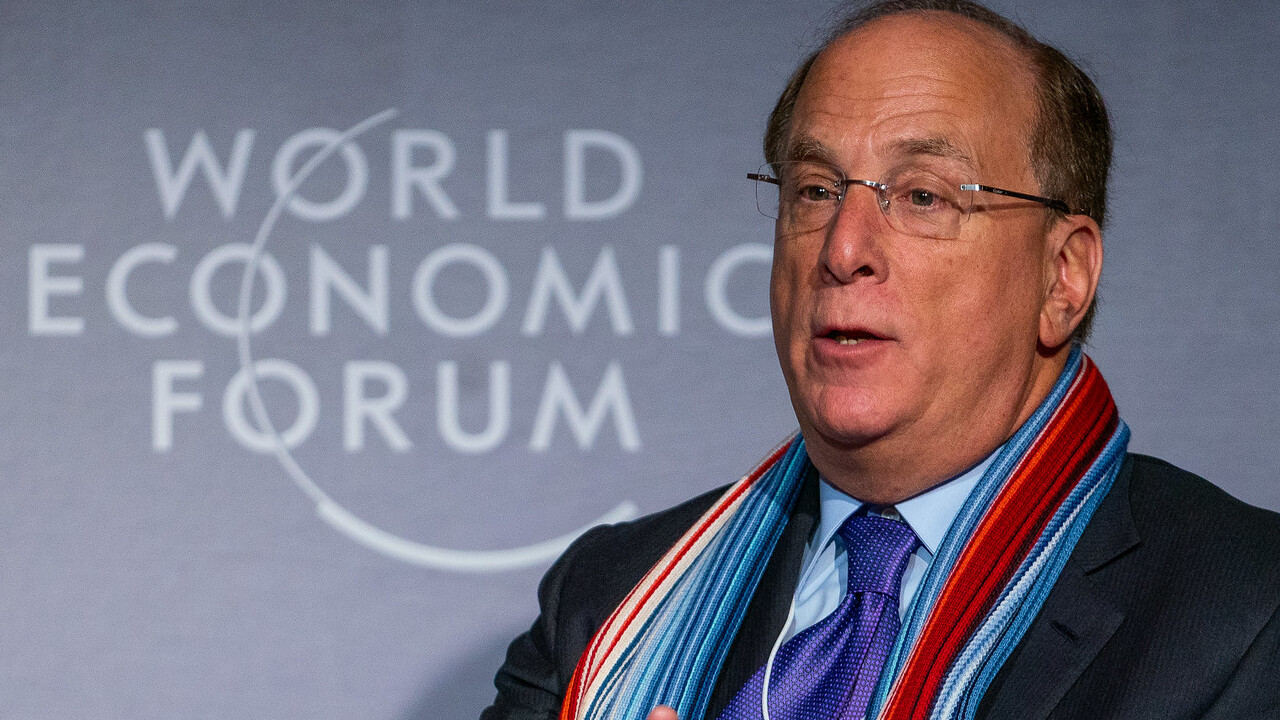As socialist policies, leaders, and ideas continue to proliferate exponentially in the United States, including an increasingly concerning espousal of socialist objectives by corporate America, it is important to understand socialism’s relationship to fascism. Despite constant assertions coming from the progressive left that fascism is equivalent to conservatism, it is fascism and socialism that have historically represented two nearly identical sides of the same coin, and conservatism that has championed the individual liberties, property rights, and civil freedoms the rabid left now finds abhorrent.
Fascism and socialism unify around one defining ideology: social revolution, and subsequent totalitarian control over state policy and social consciousness. Merriam-Webster defines fascism as “A political philosophy, movement, or regime…that exalts nation and often race above the individual and that stand for a centralized autocratic government headed by a dictatorial leader, severe economic and social regimentation, and forcible suppression of opposition.”[1]
Historian Emilio Gentile—one of the world’s foremost scholars of fascism—describes it as a political ideology with an “extra ingredient” that creates a “political religion.”[2] Gentile contends that this ingredient—essentially, totalitarian control—is found in fascist and Marxist states alike.
Fascist principles are often co-opted by left-wing populism, the roots for which are based in a socialist vision for a society incorporating a more equitable distribution of resources and a subversion of individuality.[3] Such examples are myriad, but some of the more modern examples include Hugo Chavez’s communist Venezuela—hardly a success story—and, of course, the ever-inspirational communist China—which has come to increasingly represent a fascist model through its synthesis of political, economic, and social institutions and the near dictatorial level of power wielded by Xi Jinping.
For more clear-cut links between socialism and fascism, one needs only examine fascism’s initial rise throughout inter-war Europe in the years leading up to World War II. Many of fascism’s proponents were either former socialists, or espoused socialist principles to a significant degree.
In France, prominent French Socialist Party member Marcel Deat led the “neo-socialist” movement that became a backbone of the Nazi-allied Vichy government.[4] In Belgium, Deat’s socialist counterpart and close ally Hendrik de Man adopted a similar perspective, urging “a state plan based on a mixed economy, central direction of that economy, inflationary fiscal policies, and Keynesian deficit financing – the achievement of which would be brought about by an alliance between the proletariat and the middle classes.”[5]
The Union Socialiste Republicaine represented the combined efforts of Deat and de Man, and has been described as a “fascist movement” with “left-wing goals.”[6]
In the United Kingdom, Oswald Mosley and his allies created the British Union of Fascists. Mosley had been a strong force within the liberal British Labour Party, and espoused Keynesian-influenced policy goals based upon centralized economic planning.[7] Once Mosley became more influential, he added elements from the state-run corporatism inherent to the Italian fascist experiment, from which the greater fascist movement finds its roots.
Fascist dictator Benito Mussolini was the outspoken leader of that experiment, though he himself was a former member of the Italian Socialist Party. Mussolini came to believe that only through centrally controlling all corporate activity could the ultimate objective of a totalitarian state be achieved.[8] His ideological counterpart—and the true academic author of Italian fascism—Giovanni Gentile directly stated “Fascism is a form of socialism, in fact, it is its most viable form.”[9]
Italian priest and politician Luigi Sturzo drew closer links to fascism, equating it with Soviet-style communism—which, for all intents and purposes, is just a more progressed form of socialism. He believed “Fascism was black communism and communism was red fascism.”[10]
Prominent Soviet communists painted a similar picture. Some of the most influential early Bolsheviks, including Nikolai Bukharin and Leon Trotsky, saw stark similarities, before they were brutally murdered by Joseph Stalin. Trotsky, who with Vladimir Lenin was perhaps the strictest Marxist adherent, would even write, “Stalinism and fascism, in spite of deep difference in social foundations, are symmetrical phenomena.”[11]
Yet, perhaps the most predominant example of fascism’s socialist roots is Adolf Hitler’s Third Reich, with Hitler taking much from Mussolini and Gentile’s Italian model. Hitler, too, embraced socialist ideals at his roots; French historian Francois Furet even referred to him as “Lenin’s younger brother.”[12]
One of Hitler’s early speeches contended socialism to be “the final concept of duty, the ethical duty of work, not just for oneself but also for one’s fellow man’s sake, and above all the principle: Common good before own good.”[13] Another proclaims, “We must on principle free ourselves from any class standpoint…there are no such things as classes… there can only be a single people and beyond that nothing else.”[14]
As time transpired, Hitler’s Nazi movement came to be riven with the aforementioned corporatist influence. Elaborating in 1931 on his proposed plan to revitalize Germany’s floundering economy, Hitler argued “The program demands the nationalization of all public companies, in other words socialization…the good of the community takes priority over that of the individual. But the State should retain control; every owner should feel himself to be an agent of the State… the Third Reich will always retain the right to control property owners.”[15]
Hitler’s public statements were not the only source of socialist ideals.
Joseph Goebbels, Nazi Germany’s Minister of Propaganda and perhaps Hitler’s closest ally, once claimed “The future belongs to the dictatorship of the socialist idea of the state.”[16]
Early Hitler opponent and German war minister Wilhelm Groener condemned: “There is no doubt that many members of the SA and SS were in the recent period militants of communist organization. Their goal is and remains communism.”[17]
Upon a visit to Germany during Hitler’s rise, Simone Weil lamented, “The whole German youth, in almost every social milieu is driven…by a violent feeling of hatred towards capitalism and a burning desire for a socialist regime.”[18]
German industrial titan Alfried Krupp stated, “They want a sort of Bolshevism with jack-boots but without a brain.”[19] Ironically, the Krupp company would shortly thereafter be suborned by the corporatism that drove the Nazi cause, and become the primary supplier of Hitler’s Wehrmacht.
The Nazi Party—officially, the National Socialist German Workers’ Party—was able to achieve its level of control by unifying political, economic, and social society while simultaneously eliminating any dissent. Hitler institutionalized his dogmatic agenda by allying himself with Big Business – such as Krupp, I.G. Farben, Siemens, and many others – rather than destroying it, as many communists have been prone to do.
By necessity, fascism flows from socialism; as fascism’s aforementioned father Gentile believed, his creation is simply socialism’s most viable and effective form.
With socialism and fascism infiltrating American society on an ever-increasing basis, it would be wise for us to take note of history, which goes so often ignored.
Before our eyes, alliances continue to synthesize between Wall Street, big government, the mainstream media, the education system, and Big Tech, operating with vastly similar objectives of social control. Wall Street is destroying free markets and economic choice through its coercive implementation of environmental, social, and governance (ESG) scores, which have come to be the primary spear of “woke capitalism.” The government aids and abets this circumvention of democratic processes by using regulatory authorities such as the Securities and Exchange Commission and the Office of the Comptroller of the Currency, with the Federal Reserve often working hand-in-glove with the most powerful of Wall Street players, such as with BlackRock during COVID-19.
All the while, the mainstream media and the education system indoctrinate the unwary or the innocent with a new woke way of life. In tandem, Big Tech censors those expressing their guaranteed rights to freedom of speech on social media platforms.
Italian political sociologist Luciano Pellicani writes: “Fascism and capitalism are two antithetical realities. If the principles of the first prevail, the principles of the second – full property rights, absolute freedom to buy and sell according to the laws of the market, the logic of profit and competition, etc. – are inevitably seriously restricted, if not annihilated altogether.”[20]
In the aggregate, this overarching alliance is fascist at its roots, paying lip service to social objectives in the interest of developing a totalitarian political religion. This new religion—perhaps even more powerful than that perpetrated by the Nazis 80 years ago—is bent on destroying individual thought, economic freedom, and civil liberty. It’s time to wake up.
[1] Merriam-Webster, accessed January 18, 2022, https://www.merriam-webster.com/dictionary/fascism
[2] Emilio Gentile, “Fascism, Totalitarianism, and Political Religion: Definitions and Critical Reflections on Criticism of an Interpretation,” Totalitarian Movements and Political Religions, Vol. 5, No. 3, 2004, p. 363.
[3] Bat-Ami Bar On, “But is it Fascism?” Journal of Social Philosophy, Vol. 50, No. 4, 2019, pp. 407-424.
[4] Richard Griffiths, “Fascism and the Planned Economy: ‘Neo-Socialism’ and ‘Planisme’ in France and Belgium in the 1930’s,” Science & Society, Vol. 69, No. 4, 2005, pp. 580-593.
[5] Ibid, p. 582.
[6] Robert Soucy, French Fascism: The Second Wave, 1933-39, New Haven, Connecticut: Yale University Press, 1995.
[7] Gary Love, “’What’s the Big Idea?’: Oswald Mosley, the British Union of Fascists and Generic Fascism,” Journal of Contemporary History, Vol. 42, No. 3, 2007, pp. 447-468.
[8] David Roberts, “Myth, Style, Substance, and the Totalitarian Dynamic in Fascist Italy,” Contemporary European History, Vol. 16, No. 1, 2007, pp. 1-36.
[9] Emmanuel Rincon, “There’s No Denying the Socialist Roots of Fascism,” FEE Stories, November 27, 2021, https://fee.org/articles/theres-no-denying-the-socialist-roots-of-fascism/
[10] Arnold Beichman, “Fascism—an “Ism” of the Left, not the Right,” The Hoover Institute, October 30, 2005, https://www.hoover.org/research/fascism-ism-left-not-right
[11] Arnold Beichman, “The Surprising Roots of Fascism,” The Hoover Institute, August 1, 2000, https://www.hoover.org/research/surprising-roots-facism
[12] Francois Furet, Le Passe D’une Illusion, Paris: Laffont/Calmann-Levy, 1995, p. 243.
[13] Adolf Hitler, “Why We Are Antisemites,” delivered August 15, 1920 in Munich.
[14] Adolf Hitler, speech given April 12, 1921.
[15] Hitler’s Interview with Richard Breiting, 1931.
[16] Cited in Luciano Pellicani, “Fascism, Capitalism, Modernity,” European Journal of Political Theory, Vol. 11, No. 4, 2012, pp. 396-397.
[17] Cited in Paul Aycoberry, La Question Nazi, Paris: Seuil, 1981, p. 59.
[18] Simone Weil, Sulla Germania Nazista, Milan: Adelphi, 1990, p. 173.
[19] Cited in Jean Marabini, La Vita Quotidiana a Berlino Sotto Hitler, Milan: Rizzoli, 1987, p. 61.
[20] Pellicani, 2012, p. 400.
Jack McPherrin ([email protected]) is a managing editor of StoppingSocialism.com, research editor for The Heartland Institute, and a research fellow for Heartland's Socialism Research Center. He holds an MA in International Affairs from Loyola University-Chicago, and a dual BA in Economics and History from Boston College.






